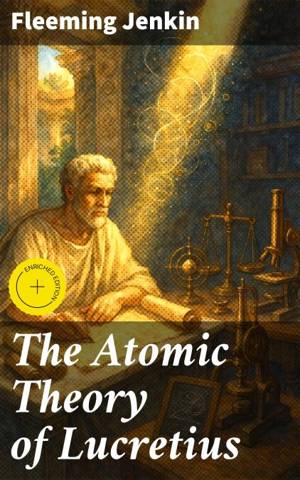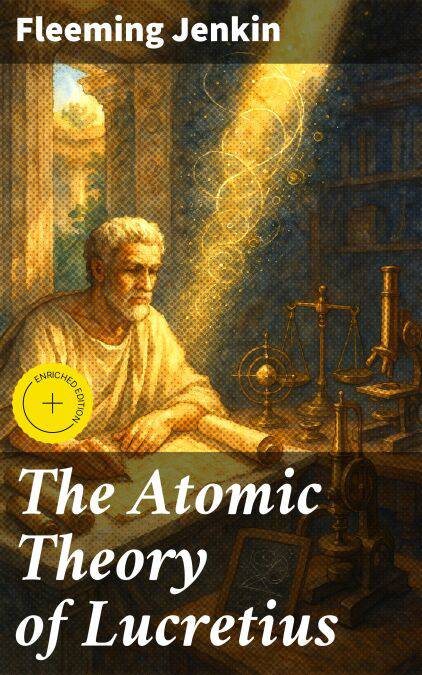
Bedankt voor het vertrouwen het afgelopen jaar! Om jou te bedanken bieden we GRATIS verzending (in België) aan op alles gedurende de hele maand januari.
- Afhalen na 1 uur in een winkel met voorraad
- In januari gratis thuislevering in België
- Ruim aanbod met 7 miljoen producten
Bedankt voor het vertrouwen het afgelopen jaar! Om jou te bedanken bieden we GRATIS verzending (in België) aan op alles gedurende de hele maand januari.
- Afhalen na 1 uur in een winkel met voorraad
- In januari gratis thuislevering in België
- Ruim aanbod met 7 miljoen producten
Zoeken
The Atomic Theory of Lucretius E-BOOK
Enriched edition. Uncovering the Foundations of Modern Science
Fleeming Jenkin
E-book | Engels
€ 1,99
+ 1 punten
Omschrijving
In "The Atomic Theory of Lucretius," Fleeming Jenkin meticulously unpacks and contemporizes the ancient Roman philosopher Lucretius's understanding of atomic theory. Through a scholarly lens, Jenkin delves into the poetic and philosophical implications of Lucretius's work, particularly how it intersects with the scientific discourse of the 19th century. The book's literary style is rich and accessible, combining rigorous analysis with a narrative that brings Lucretius's ideas to life, inviting readers into the complexities of atomism and its existential ramifications within the broader context of Epicurean thought. Fleeming Jenkin, a notable physicist and engineer, was deeply influenced by the scientific inquiries of his time, particularly the burgeoning fields of thermodynamics and atomic theory. His academic background and personal fascination with the intersection of science and philosophy led him to engage with Lucretius's text, illuminating its relevance for modern readers. Jenkin believed in the importance of contrasting ancient wisdom with contemporary scientific advancements, and this book serves as the culmination of his endeavor to bridge those worlds. For anyone interested in the foundations of atomic theory, philosophy, or the historical evolution of scientific thought, Jenkin's thorough exploration offers invaluable insights. This book not only serves as a scholarly resource but also as an invitation to contemplate the enduring legacy of Lucretius's ideas, making it a must-read for both scholars and casual readers alike.
In this enriched edition, we have carefully created added value for your reading experience:
- Hand‐picked Memorable Quotes shine a spotlight on moments of literary brilliance.
- Interactive footnotes clarify unusual references, historical allusions, and archaic phrases for an effortless, more informed read.
In this enriched edition, we have carefully created added value for your reading experience:
- Hand‐picked Memorable Quotes shine a spotlight on moments of literary brilliance.
- Interactive footnotes clarify unusual references, historical allusions, and archaic phrases for an effortless, more informed read.
Specificaties
Betrokkenen
- Auteur(s):
- Uitgeverij:
Inhoud
- Aantal bladzijden:
- 39
- Taal:
- Engels
Eigenschappen
- Productcode (EAN):
- 4064066311858
- Verschijningsdatum:
- 7/12/2020
- Uitvoering:
- E-book
- Beveiligd met:
- Digital watermarking
- Formaat:
- ePub

Alleen bij Standaard Boekhandel
+ 1 punten op je klantenkaart van Standaard Boekhandel
Beoordelingen
We publiceren alleen reviews die voldoen aan de voorwaarden voor reviews. Bekijk onze voorwaarden voor reviews.









